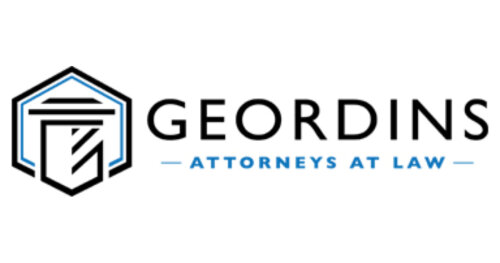Best Employer Lawyers in Grace Bay
Share your needs with us, get contacted by law firms.
Free. Takes 2 min.
List of the best lawyers in Grace Bay, Turks and Caicos Islands
About Employer Law in Grace Bay, Turks and Caicos Islands
Employer law in Grace Bay, Turks and Caicos Islands governs the relationship between employers and employees, outlining both parties’ rights and responsibilities. The legal framework includes employment contracts, workplace standards, dispute resolution, and compliance with local labor regulations. Grace Bay, as a popular tourism destination, sees many private employers in hospitality, retail, and service industries, all of which are subject to the territory’s employment laws. Employer law ensures fair treatment of workers and provides guidance on hiring, termination, compensation, and workplace safety.
Why You May Need a Lawyer
There are several situations where an employer or an employee may require legal assistance concerning employment matters in Grace Bay. Common reasons include employee contract disputes, wrongful termination claims, issues around work permits for expatriates, workplace grievances, discrimination cases, compliance with labor standards, and complex situations such as restructuring or redundancy. A lawyer can provide advice on drafting employment agreements, handling grievances or disciplinary proceedings, and representing clients in Employment Tribunal matters. Seeking legal help early can often prevent disputes from escalating.
Local Laws Overview
The main piece of legislation governing employment in Grace Bay and throughout Turks and Caicos Islands is the Employment Ordinance. It covers terms and conditions of employment, termination and redundancy rights, maternity and sick leave, minimum wage, and health and safety obligations. Employers must issue written contracts of employment and comply with rules regarding the treatment of local and expatriate workers, particularly regarding work permits and labor market testing. The law restricts unfair labor practices and provides mechanisms for dispute resolution through the Labour Department and the Employment Tribunal. Additionally, anti-discrimination provisions prohibit workplace discrimination on the grounds of gender, ethnicity, or disability.
Frequently Asked Questions
What is required in an employment contract in Grace Bay?
Employment contracts must be in writing and should clearly state job duties, compensation, working hours, leave entitlements, notice periods, and any other agreed terms. Both employer and employee must have a signed copy.
Are there minimum wage laws?
Yes, Turks and Caicos Islands have a legal minimum wage set by the government. Employers in Grace Bay must pay at least this rate. The rate may vary by sector or by updates from the government.
How are work permits handled for non-citizen employees?
Non-citizen employees need a valid work permit issued by the Turks and Caicos Islands government. Employers are responsible for applying for the permit and must show they have considered local candidates first.
What reasons are acceptable for terminating employment?
Employment may be terminated for reasons such as redundancy, poor performance after due warning, gross misconduct, or by mutual agreement. Termination must follow the procedures outlined in the law and contract.
What are the rules on redundancy?
Employers must provide notice and redundancy pay as regulated by the Employment Ordinance. Proper justification for redundancy and a fair selection process are required.
How are workplace disputes resolved?
Most workplace disputes are first addressed internally. If unresolved, parties can file complaints with the Labour Department or pursue the matter before the Employment Tribunal for a legal decision.
What leave entitlements exist for employees?
Employees are entitled to paid annual leave, sick leave, and maternity or paternity leave as specified in the law. Leave entitlements are minimum standards and can be improved by contract.
Are there laws against workplace discrimination?
Yes, it is illegal to discriminate against an employee based on gender, ethnicity, nationality, age, or disability. Offenders may be subject to legal penalties and compensatory claims.
Is health and safety regulated?
Employers have a legal duty to ensure the workplace is safe and healthy, following specific regulations concerning accident prevention, training, and reporting obligations.
What records must employers keep?
Employers are required to maintain employment records, including contracts, wage payments, attendance, and leave records. These must be available for inspection by authorities if requested.
Additional Resources
- Turks and Caicos Islands Labour Department: Offers guidance on employment law and processes work permit applications. - Employment Tribunal of Turks and Caicos Islands: Handles formal disputes between employers and employees. - Ministry of Border Control and Labour: Manages labor policy and regulatory compliance. - Local legal practices specializing in employment law: Provide tailored legal services and advice. - Turks and Caicos Islands Government website: Publishes official laws, forms, and minimum wage rates.
Next Steps
If you need legal assistance regarding employer law in Grace Bay, it is advisable to:
- Gather all relevant employment documents, such as contracts and correspondence. - Clearly outline your issue or question for the lawyer. - Contact the Labour Department for preliminary guidance or to obtain information about your rights. - Seek a consultation with a qualified employment lawyer experienced in Turks and Caicos Islands law. - If a dispute cannot be resolved amicably, learn about your options for dispute resolution through the Employment Tribunal.
Taking timely action and getting professional advice can help protect your rights and minimize risks whether you are an employer or an employee in Grace Bay.
Lawzana helps you find the best lawyers and law firms in Grace Bay through a curated and pre-screened list of qualified legal professionals. Our platform offers rankings and detailed profiles of attorneys and law firms, allowing you to compare based on practice areas, including Employer, experience, and client feedback.
Each profile includes a description of the firm's areas of practice, client reviews, team members and partners, year of establishment, spoken languages, office locations, contact information, social media presence, and any published articles or resources. Most firms on our platform speak English and are experienced in both local and international legal matters.
Get a quote from top-rated law firms in Grace Bay, Turks and Caicos Islands — quickly, securely, and without unnecessary hassle.
Disclaimer:
The information provided on this page is for general informational purposes only and does not constitute legal advice. While we strive to ensure the accuracy and relevance of the content, legal information may change over time, and interpretations of the law can vary. You should always consult with a qualified legal professional for advice specific to your situation.
We disclaim all liability for actions taken or not taken based on the content of this page. If you believe any information is incorrect or outdated, please contact us, and we will review and update it where appropriate.









